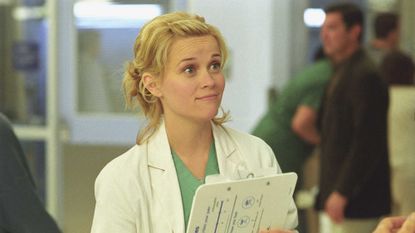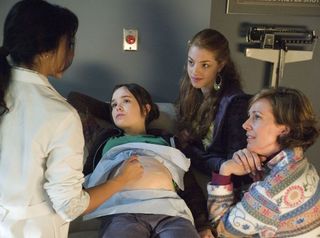This is why the number of midwives and nurses are at a record low
'The nursing workforce is in crisis'


'The nursing workforce is in crisis'
Nurses and midwives are one of the main arteries of the NHS and if you ask anybody who’s ever had a hospital birth, they’d probably be inclined to agree. However despite their monumental role, it turns out that 2017 is officially the year that more midwives and nurses are leaving the work force - and there aren’t enough new people joining to replace them.
According to the Nursing and Midwives Council, the number of people in the profession has dropped from 692,556 in 2013 to 690,773 in March, 2017. The stats from April and May don’t look good either with another 3264 professionals bowing out. Of those professionals, more than three quarters (85%) were British and the number of people aged 21-30 leaving had nearly doubled between 2012/13 to 2016/17.
The NMC surveyed 4500 nurses and midwives to find out why they were leaving and while many cited retirement, poor working conditions was close to follow. Nearly 44% of those leaving for non-retirement related reasons spoke of understaffing and high work loads, while the next highest was personal circumstances.

It was slightly different for EU nurses/midwives leaving, as 58% of them said they had been planning to leave the UK while a further 32% said that concerns about Brexit had caused them to pursue work elsewhere.
In a statement to the BBC, Saffron Cordery of NHS Providers said, ‘These figures provide further evidence of the severe workforce problems NHS trusts face. This goes beyond the concerns over Brexit - worrying though they are. The reduction in numbers is most pronounced among UK registrants.'
'And it is particularly disappointing to see so many of our younger nurses and midwives choosing to leave. However, until we address the underlying issues driving retention problems, including the pay cap and the unsustainable workplace pressures, these approaches will only have a limited impact.’
Marie Claire Newsletter
Celebrity news, beauty, fashion advice, and fascinating features, delivered straight to your inbox!
One deterrent for those considering a career in nursing or midwifery is the fact that bursaries for potential applicants were completely slashed, meaning that student nurses would have to pay over £9000 in schooling fees.
This year alone, applications for midwifery and nursing courses have dropped by 23%. Janet Davies, the general secretary of Royal College of Nursing, told The Guardian, ‘The nursing workforce is in crisis and if fewer nurses graduate in 2020 it will exacerbate what is already an unsustainable situation...The future of nursing, and the NHS, is in jeopardy.’
Megan is a freelance journalist who covers entertainment and all things lifestyle, with a particular passion for fashion, beauty, travel and Keanu Reeves stories. She has previously worked on staff for titles including Marie Claire UK, CNN Style and The Evening Standard and has written for titles such as Bustle UK, Wallpaper*, Forbes and Hong Kong Tatler. She splits her time between London and her hometown Hong Kong, where she currently lives with the love of her life - an elderly dog named Poppy - and her husband.
-
 Trust me, tinted lip balms are the low maintenance way of adding a wash of colour without the stress - here are 7 of the best
Trust me, tinted lip balms are the low maintenance way of adding a wash of colour without the stress - here are 7 of the bestFrom affordable to luxe, these are the ones I love
By Tori Crowther
-
 Here's exactly how to get your feet sandal-ready in 6 simple steps, according to a nail tech
Here's exactly how to get your feet sandal-ready in 6 simple steps, according to a nail techThese are the products I rely on
By Tori Crowther
-
 With their Sunlit Clementine & Vetiver collection, Molton Brown has mastered the aroma of an endless summer
With their Sunlit Clementine & Vetiver collection, Molton Brown has mastered the aroma of an endless summerEscapism at its finest
By Shannon Lawlor